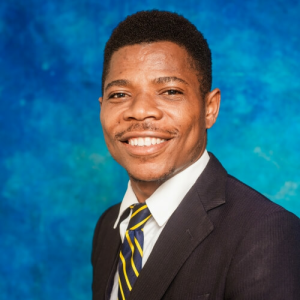Copyright Clash: Mike Ejeagha And Brian Jotter - A Legal Analysis Of Social Media Content Ownership In Nigeria.
Introduction
The recent dispute between Nigerian music legend Mike Ejeagha and social media content creator Chukwuebuka Emmanuel Amuzie (popularly known as ‘Brian Jotter’) has sparked a legal debate on copyright law, protection, and infringement in Nigeria after the Artist paid Ejeagha the sum of Two Million Naira (N2,000,000.00) only. This article examines the rights of both parties under Nigerian copyright law and explores the role of judicial authorities in resolving such disputes.
Copyright Law and Protection
Copyright is a type of intellectual property that protects original works of authorship as soon as an author fixes the work in a tangible form of expression. Also, Copyright is a legal term used to describe the rights that creators have over their literary and artistic works. In copyright law, there are a lot of different types of works, including paintings, photographs, illustrations, musical compositions, sound recordings, computer programs, books, poems, blog posts, movies, architectural works, plays, and so much more!
It is pertinent to note that, works are original when they are independently created by a human author and have a minimal degree of creativity. The Copyright law provides copyright owners with the following exclusive rights:
- Reproduce the work in copies or phonorecords.
- Prepare derivative works based on the work.
- Distribute copies or phonorecords of the work to the public by sale or other transfer of ownership or by rental, lease, or lending.
- Perform the work publicly if it is a literary, musical, dramatic, or choreographic work; a pantomime; a motion picture or other audiovisual work.
- Display the work publicly if it is a literary, musical, dramatic, or choreographic work; a pantomime; or a pictorial, graphic, or sculptural work.
- Perform the work publicly utilizing a digital audio transmission if the work is a sound recording.
Ejeagha's music is protected by the Nigerian Copyright Act of 1988, which grants exclusive rights to the creator, including reproduction, distribution, and performance. The Nigerian Copyright Commission (NCC) is responsible for enforcing copyright laws and regulating related activities.
Infringement by Brian Jotter
Jotter's unauthorized use of Ejeagha's music in his social media content constitutes copyright infringement. The “Gwo Gwo Gwo Ngwo” dance challenge has become a cultural phenomenon, with numerous celebrities and content creators participating, including Woli Agba, Kiekie, Nosa Rex, Mary Lazarus, Phyna, Oluwa Dollarz, Queen Mercy Atang, Frodd, Asisat Oshoala, Victony, and Tobi Bakare. The Federal High Court of Nigeria has jurisdiction over copyright infringement cases, and Ejeagha can seek legal redress through this court.
Judicial Authorities
The Nigerian judicial system has various authorities that play a crucial role in resolving copyright disputes:
- Federal High Court of Nigeria: Has jurisdiction over copyright infringement cases and can award damages, injunctions, or both.
- Nigerian Copyright Commission (NCC): Enforces copyright laws, regulates related activities, and can mediate disputes.
- National Industrial Court of Nigeria (NICN): Handles disputes related to intellectual property, including copyright.
Conclusion
Mike Ejeagha's rights over his music are protected by Nigerian copyright law, and Brian Jotter's unauthorized use constitutes infringement. The Nigerian judicial system, particularly the Federal High Court, NCC, and NICN, plays a vital role in resolving such disputes and enforcing copyright laws. Content creators must respect copyright laws and obtain necessary permissions or licenses to use protected works.




